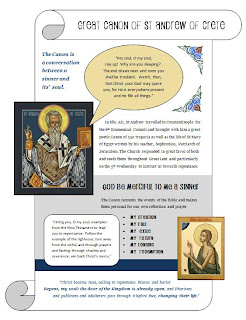>[Scroll down to read about the letters A-W in “A Sinner’s Lenten Alphabet.” This is the final post of the series.]
 X is for Christ
X is for Christ
Y is for Yearning
Z is for Zoe (Life) and Zeal
 In icons of Christ, the letters “ICXC” indicate his name, “Jesus Christ.”
In icons of Christ, the letters “ICXC” indicate his name, “Jesus Christ.”
 Even his hand (or the hand of a priest) forms the word, Jesus Christ, written in Greek letters: IC XC. The index finger is supposed to be held straight to form the “I”, middle finger curved to be the first “C”, thumb and ring finger crossed to form the “X” and little finger curved to form the final “C”.
Even his hand (or the hand of a priest) forms the word, Jesus Christ, written in Greek letters: IC XC. The index finger is supposed to be held straight to form the “I”, middle finger curved to be the first “C”, thumb and ring finger crossed to form the “X” and little finger curved to form the final “C”.
 In Alexander Elchaninov’s Diary of a Russian Priest, he writes to a person who is struggling with the spiritual life:
In Alexander Elchaninov’s Diary of a Russian Priest, he writes to a person who is struggling with the spiritual life:
“I think that two causes are at the basis of your spiritual difficulties: 1. An excessive preoccupation with your own self, and, as a result, an insufficient interest in those around you. 2. An insufficient love of Christ. This love is the basis and root of all spiritual life and strength; we must make it grow up and must train it in ourselves. Begin, for instance, with the overwhelming thought that in all human history there has never been anything more beautiful than Christ…. To gaze attentively at this image, to understand its meaning and to root it deeply in ourselves, to feed on the thoughts of Him, to give our heart to Him—such is the life of the Christian. When this happens, then there is complete peace of heart, that peace of which St. Isaac the Syrian said: ‘Be at peace with yourself, and heaven and earth will be at peace with you.’”
As I was preparing for the sacrament of Confession on Monday evening following  one of the Lenten services at St. John Orthodox Church, I read again some of the prayers of preparation for Confession, as well as the comments about the Ten Commandments in the “Self Examination” part of the Orthodox Prayer Book. If this was a twelve-step program, I’d definitely be considered a failure, as I never can make it past step one:
one of the Lenten services at St. John Orthodox Church, I read again some of the prayers of preparation for Confession, as well as the comments about the Ten Commandments in the “Self Examination” part of the Orthodox Prayer Book. If this was a twelve-step program, I’d definitely be considered a failure, as I never can make it past step one:
“And you shall love the Lord your God with all your heart, with all your soul, with all your mind, and with all your strength.” (Deut. 6:5)
I don’t love God. Those words might sound shocking, coming from someone who has been a Christian for almost sixty years. But they are true. Most days I do believe that God loves me, which is a starting point. But I’m still pretty much in love with God’s creation, like a selfish child who only loves what her parents can give her. But I know some people who love God, and I want to love Him the way they do.
So how do we cultivate this love for Christ, this yearning that David wrote about in the Psalms when he said, “My soul yearns, even faints, for the courts of the Lord,” (Psalm 84:2) and “As the deer pants for the water brooks, so my soul pants for you, O God.” (Psalm 42:1)
 It helps me to be around people who love God. Consider how much we are affected by the people we spend time with. Hanging out with people who love to eat and drink makes me want to eat and drink more. Being with people who are avid athletes inspires me to exercise. Spending time with artists and writers spurs my creative efforts. And being with people who love God—and who love to pray—is my salvation. Thankfully, during Great Lent, our parish offers lots of opportunities to come and pray. Tonight we’ll pray the entire Canon of St. Andrew of Crete and read the Life of Saint Mary of Egpyt at St. John. She loves God.
It helps me to be around people who love God. Consider how much we are affected by the people we spend time with. Hanging out with people who love to eat and drink makes me want to eat and drink more. Being with people who are avid athletes inspires me to exercise. Spending time with artists and writers spurs my creative efforts. And being with people who love God—and who love to pray—is my salvation. Thankfully, during Great Lent, our parish offers lots of opportunities to come and pray. Tonight we’ll pray the entire Canon of St. Andrew of Crete and read the Life of Saint Mary of Egpyt at St. John. She loves God.
 And on Sunday, Monday and Tuesday nights of Holy Week, we’ll pray Bridegroom Orthros. It helps me to think about the love the bride has for the bridegroom as she anticipates her marriage. That’s how the Church is supposed to love God. That’s how we are supposed to love God.
And on Sunday, Monday and Tuesday nights of Holy Week, we’ll pray Bridegroom Orthros. It helps me to think about the love the bride has for the bridegroom as she anticipates her marriage. That’s how the Church is supposed to love God. That’s how we are supposed to love God.
![]() My favorite is Tuesday night, when we see the great love for God shown by the sinful woman who washed Jesus’ feet with her tears, as we sing the Hymn of Saint Kassiane:
My favorite is Tuesday night, when we see the great love for God shown by the sinful woman who washed Jesus’ feet with her tears, as we sing the Hymn of Saint Kassiane:
“I have transgressed more than the harlot, O loving Lord, yet never have I offered You my flowing tears. But in silence I fall down before You and with love I kiss Your most pure feet, beseeching You as Master to grant me remission of sins; and I cry to You, O Savior: Deliver me from the filth of my works.”
 For those who truly love God, prayer and good works and fasting flow naturally. As St. Theophan says in The Spiritual Life, “Those who are zealous about prayer do not need any rules.” He also says, “Those who are truly free are those who love.” Those who love Christ aren’t bound by rules, but those of us who are still struggling to love Him probably need a pattern to follow. I know I do.
For those who truly love God, prayer and good works and fasting flow naturally. As St. Theophan says in The Spiritual Life, “Those who are zealous about prayer do not need any rules.” He also says, “Those who are truly free are those who love.” Those who love Christ aren’t bound by rules, but those of us who are still struggling to love Him probably need a pattern to follow. I know I do.
 Another thing Theophan says that helps me is to approach spiritual activity “as if you were going to carry it out for the first time.” When I think of this in relation to love, I remember how I felt the first time I was in love. The first kiss. And I also remember how I felt when I went through an early phase of zeal for God and for prayer. The Church encourages us to “remember your baptism” each time we are present for the Sacrament of Baptism and to renew our wedding vows each time we participate in the Sacrament of Matrimony for others. I want to recapture that zeal. In the introduction to Letters to a Beginner, On Giving One’s Life to God, the nun Sophia writes:
Another thing Theophan says that helps me is to approach spiritual activity “as if you were going to carry it out for the first time.” When I think of this in relation to love, I remember how I felt the first time I was in love. The first kiss. And I also remember how I felt when I went through an early phase of zeal for God and for prayer. The Church encourages us to “remember your baptism” each time we are present for the Sacrament of Baptism and to renew our wedding vows each time we participate in the Sacrament of Matrimony for others. I want to recapture that zeal. In the introduction to Letters to a Beginner, On Giving One’s Life to God, the nun Sophia writes:
 “Why can’t we, free women of the 20th century, have paradisal otherworldliness rhythmically beaing in our breasts? Why should the saints of the past be the only ‘Godbearers,’ and we not have God at our side? What hinders the contemporary woman, albeit living in ultra-modern surroundings, from having at hand patristic, ascetic spiritual power, endowed by Christ Himself? What hinders us from truly being with God?”
“Why can’t we, free women of the 20th century, have paradisal otherworldliness rhythmically beaing in our breasts? Why should the saints of the past be the only ‘Godbearers,’ and we not have God at our side? What hinders the contemporary woman, albeit living in ultra-modern surroundings, from having at hand patristic, ascetic spiritual power, endowed by Christ Himself? What hinders us from truly being with God?”
And so “Z” is for Zeal, which we need in order to cultivate our love for God. But it’s also for “Zoe,” which means “life.”
 “I set before you life or death, blessing or curse. Choose life, then, so that you and your descendants may live.” Deuteronomy 30:19
“I set before you life or death, blessing or curse. Choose life, then, so that you and your descendants may live.” Deuteronomy 30:19
When I first thought about this phrase, “choose life,” I naturally thought about the pro-life movement. I read about an organization called Zoe For Life and I thought about my three precious adopted “children” and how thankful I am that their birth mothers chose life.
But I think that choosing life mean more than not choosing abortion. It means choosing God. It means choosing to love—to love our spouses, our children, our parents, our neighbors, our co-workers, and even our enemies. Especially our enemies. And like us, they aren’t always loveable.
![]() Maybe choosing life means choosing to love God. My spiritual father says we have to make this choice every day, every minute.
Maybe choosing life means choosing to love God. My spiritual father says we have to make this choice every day, every minute.
Like Saint Patrick, Enlightener of Ireland, whose feast we celebrate today. (Here’s a nice article about Saint Patrick.)
Saint Patrick’s Prayer
Christ, be with me, Christ before me, Christ behind me,
Christ in me, Christ beneath me, Christ above me,
Christ on my right, Christ on my left,
Christ where I lie, Christ where I sit, Christ where I arise,
Christ in the heart of every one who thinks of me,
Christ in the mouth of every one who speaks of me,
Christ in every eye that sees me,
Christ in every ear that hears me.
Salvation is of the Lord,
Salvation is of the Lord,
Salvation is of the Christ,
May your salvation, O Lord, be ever with us.
Thanks for sharing this part of my Lenten journey by reading “A Sinner’s Lenten Alphabet.” I’m finishing it up today, as I’m preparing to go to the beach for a week this Saturday with my best friend and her children. I’ll be home for Palm Sunday, Holy Week, and Pascha. I’ll probably be posting from the beach while I’m gone. It won’t be the first time I’ve spent Saint Mary of Egypt Sunday at the beach. I know it’s not the desert, but I think she understands.

1 thought on “>X, Y and Z: Yearning for Christ and Choosing Life”
Comments are closed.